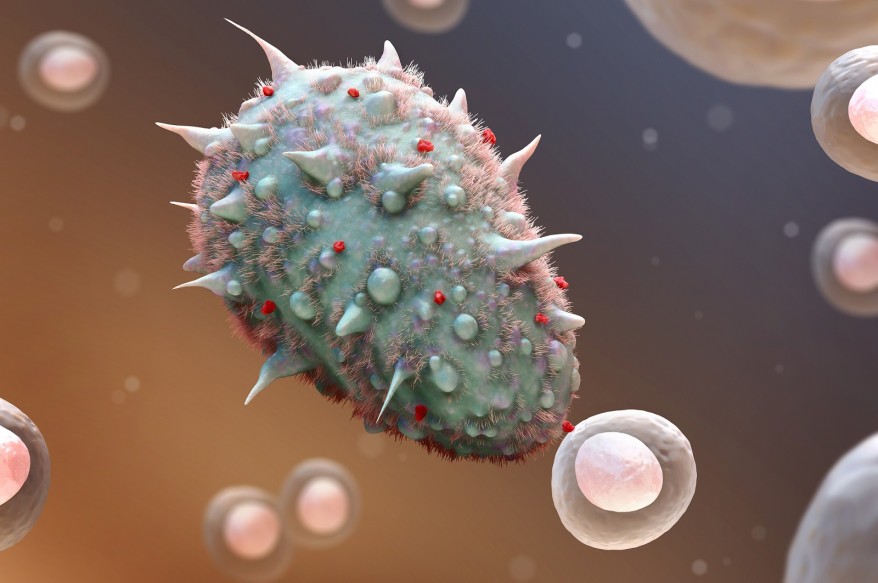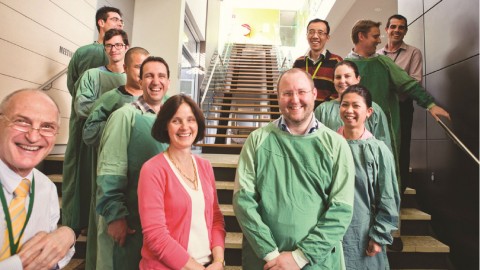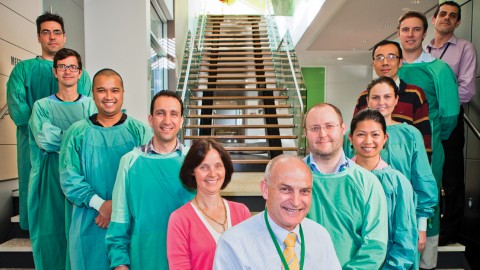Featured in ANZAC Institute Discovery, May 2012.
Despite substantial advances in treatment options, as many as 60% of patients with the most common form of adult leukaemia still die of the disease.
Finding a means to reduce this toll is one goal Associate Professor Georgina Clark of the Dendritic Cell Biology and Therapeutics group has set herself.
“My real love is the CD300 family of molecules,” says Dr Clark. That’s not surprising, as this family of molecules was discovered by Dr Clark several years ago, in conjunction with a team of scientists led by Professor Derek Hart.
Dendritic cells are unique subsets of white blood cells and are responsible for initiating and directing immune responses. Dr Clark discovered the CD300 family plays a major role in this.
“We’ve identified cells that are really significant in turning on and off the responses of a lot of the white blood cells, the dendritic cells and the monocytes that are important in taking up the foreign antigens, foreign bacteria and viruses.
“The other side of this is whether we can use these to target a particular disease, and that’s where we’re working now, in finding an alternative treatment for acute myeloid leukaemia.”
The need to find that treatment acquired some urgency after a drug known as Mylotarg had to be withdrawn because of unacceptable side effects. Dr Clark’s research has identified a new molecule, CD300f, which may lead to the development of a new antibody treatment for AML.
Dr Clark trained as a scientist in Melbourne, before moving to Oxford University in England to work in organ transplantation. She then joined Prof Hart’s research team in New Zealand and later Brisbane, before both came to the ANZAC Research Institute in 2010 after Derek Hart was appointed Professor of Transplantation and Immunotherapy at Sydney University.
“My whole research working life has been in the immunology and molecular biology of the molecules on the surface of white blood cells and how that interacts with the environment,” Dr Clark explains.
Her other major project is in researching the CD300a and CD300c biomarkers, learning about their role in controlling the dendritic cells’ response to inflammation. The work is concentrated at the moment on psoriasis, a relatively common inflammation of the skin caused by increased immune system activity.
The Dendritic Cell Biology and Therapeutics group is the newest at the Institute but is already regarded very highly for its research which could lead to dramatic developments in the field of organ transplants and in fighting diseases such as cancer, diabetes and inflammatory illnesses.









